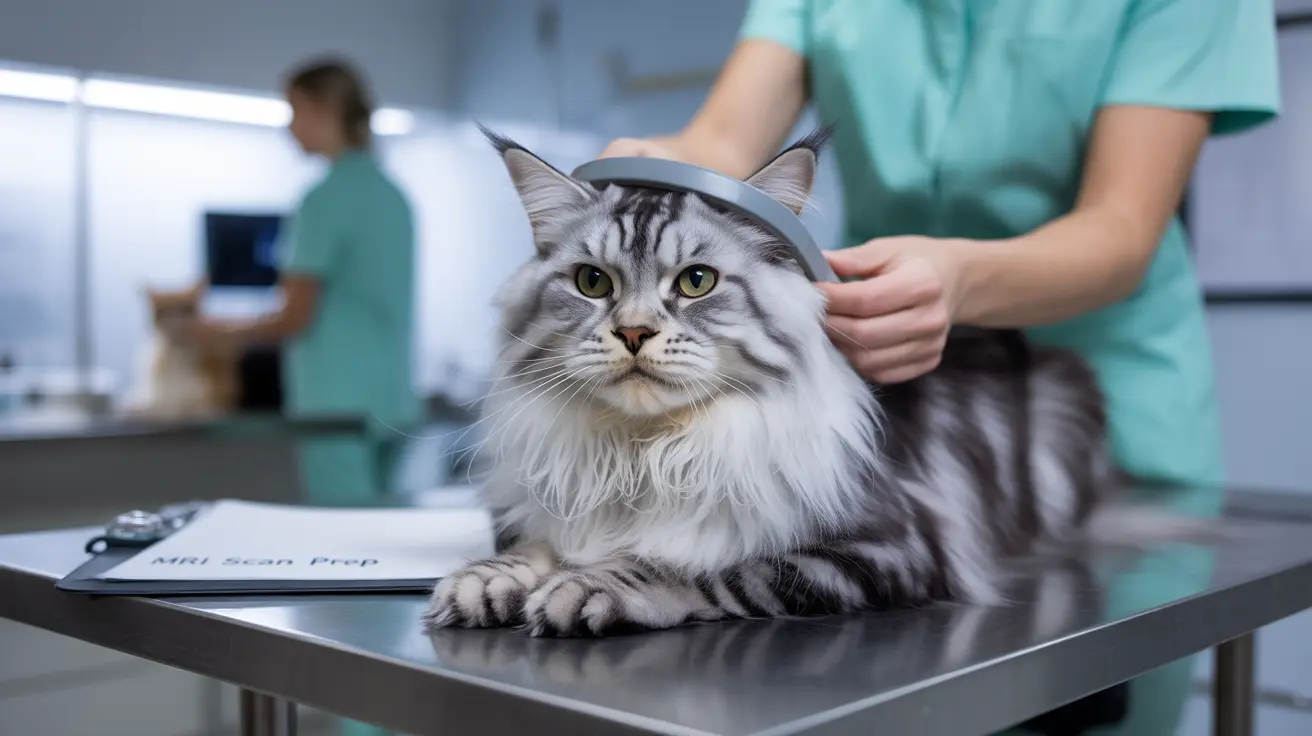If your veterinarian has recommended an MRI for your cat, you're likely wondering about the costs involved and what to expect. Magnetic resonance imaging (MRI) is a sophisticated diagnostic tool that provides detailed images of your cat's internal structures, particularly useful for examining soft tissues like the brain and spine.
While an essential diagnostic tool in modern veterinary medicine, cat MRI procedures come with significant costs that vary based on several factors. Let's explore everything you need to know about cat MRI costs, procedures, and considerations to help you make an informed decision for your feline friend.
Understanding the Cost of Cat MRI Procedures
The cost of a cat MRI can vary significantly depending on your location and the facility you choose. In the United States, expect to pay between $1,500 to $3,000 at standard veterinary clinics, while specialty veterinary hospitals may charge $3,000 to $6,000 or more.
These costs typically include:
- General anesthesia administration
- Pre-procedure assessment
- The MRI scan itself
- Post-procedure monitoring
- Professional interpretation of results
Factors Affecting MRI Costs
Several elements influence the final price of your cat's MRI:
- Geographic location (urban centers typically charge more)
- Facility type (specialty vs. standard clinic)
- Number of body regions being scanned
- Whether it's an emergency or scheduled procedure
- Additional services needed (blood work, consultation fees)
The MRI Procedure Process
Understanding what happens during a cat MRI can help justify the cost. The procedure involves:
Pre-Procedure Preparation
- Fasting for 8-12 hours
- Pre-anesthetic blood work
- Physical examination
- IV catheter placement
During the MRI
The actual scanning process takes between 30-90 minutes, during which your cat will be under general anesthesia. Throughout the procedure, veterinary staff monitor vital signs to ensure your cat's safety.
Post-Procedure Care
After the scan, your cat will spend 30-60 minutes in recovery under close supervision. Some mild grogginess may persist for several hours after returning home.
When Is an MRI Necessary?
MRIs are typically recommended for diagnosing:
- Neurological disorders
- Unexplained seizures
- Spinal cord problems
- Soft tissue injuries
- Suspected tumors
- Inner ear disorders
Managing MRI Costs
Insurance Coverage
Many pet insurance policies cover MRI procedures when deemed medically necessary. Check your policy details and consider getting insurance before any health issues arise, as pre-existing conditions are typically not covered.
Payment Options
Many veterinary facilities offer payment plans or accept CareCredit to help manage the cost. Some specialty centers may also provide sliding scale fees based on financial need.
Frequently Asked Questions
How much does a cat MRI typically cost in the US and UK veterinary clinics?
In the US, costs range from $1,500 to $6,000, depending on the facility. UK prices average around £3,161 (approximately $4,000 USD), with variations from £1,200 to £9,000 based on location and circumstances.
What factors influence the overall price of an MRI for cats?
Key factors include location, facility type, number of areas scanned, whether it's an emergency procedure, and additional services required such as pre-procedure testing and post-procedure care.
Does pet insurance usually cover the cost of a cat MRI?
Yes, many pet insurance policies cover MRI costs when deemed medically necessary. Coverage amounts and conditions vary by provider and specific policy terms.
What should I expect during the MRI procedure for my cat, including preparation and recovery?
Expect a full day at the facility, including pre-procedure fasting, anesthesia, 30-90 minutes of scanning, and 30-60 minutes of recovery time. Your cat may be groggy for several hours afterward.
Are there any risks or special considerations owners should know before scheduling an MRI for their cat?
The main risk comes from general anesthesia, particularly for older or health-compromised cats. Pre-anesthetic screening helps minimize these risks. Cats with metal implants may not be candidates for MRI procedures.
Conclusion
While the cost of a cat MRI is substantial, the diagnostic value it provides can be crucial for your cat's health outcomes. Understanding the pricing structure, insurance options, and what to expect during the procedure can help you make the best decision for your pet's care.
Always discuss the necessity and alternatives with your veterinarian to determine if an MRI is the most appropriate diagnostic tool for your cat's specific situation.






